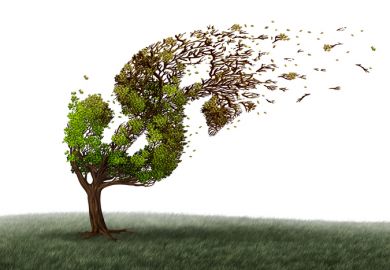The inconvenient truth in this book of Al Gore's already well-known film is, of course, climate change and its increasing impact on the surface of the Earth. Both the book and the film represent something of a personal odyssey for Gore, beginning on his father's Tennessee farm and leading to his role as Vice-President under Bill Clinton and his own presidential candidature in 2000. Since then Gore has roamed the world to put his case.
There is now no serious doubt about what is happening. Fluctuations in climate are natural, but current changes go far beyond them. Since the Industrial Revolution about 250 years ago, and possibly earlier still - with the destruction of much tree cover-our little animal species has inadvertently been changing the chemical composition of that aerial wisp around the Earth that we call atmosphere.
The increase in so-called greenhouse gases has been dramatic. In recent glacial periods of the Earth's history the concentration of carbon dioxide in the atmosphere was about 190 parts per million; in warm periods, as during the past 10,000 years, it was about 280ppm; today, it is more than 380ppm, and steadily rising. It is now the highest in 650,000 years.
Gore illustrates the impacts so far as we know them: changing patterns of rainfall and drought, more extreme events such as storms or floods, rising sea levels worldwide and the multifarious and incalculable effects on the other living organisms with which we share the Earth and on which we are wholly dependent. He also brings in related factors that are often neglected when looking at our predicament. Most important is the human population increase and the resulting resource consumption that has followed the Industrial Revolution.
In the past, our ancestors could adjust to natural change by simply going somewhere else. That option is no longer open, hence the prospect of environmental refugees at the frontiers of the (so far) favoured parts of the world.
Water is a critical element. As the Himalayan and Andean glaciers melt, the millions - or billions - of people who depend on the rivers that flow from them will be affected. No wonder the Government's chief scientific adviser has said that climate change is a bigger threat than terrorism.
This book is really a written version of the film. The pictures could almost tell the story on their own. The accompanying text is designed primarily for American readers and is highly personal. Gore's description of the underlying science relates more to his time as a student with the scientists Roger Revelle and Charles Keeling in the 1960s than to the history of the science, which goes back to the 19th century. There is, for example, no reference to such pioneers as John Tyndall, James Croll, Svante Arrhenius and Milan Milankovic, and the casual reader might think that climate change was an all-American discovery. For those interested, it is worth consulting Spencer Weart's excellent book The Discovery of Global Warming .
The film of An Inconvenient Truth has been a remarkable success in the US. The degree to which the truth has been inconvenient is brought out by the efforts made by certain parties to discredit it. It is, of course, anathema to the White House, which has a sorry record of efforts to dismiss or censor science. This should be no surprise, as the US remains the prime villain of the piece, with its greenhouse gas emissions as large as those of South America, Africa, the Middle East, Australia, Japan and Asia put together.
But opinion in the US is now changing fast, with voluntary action to curb emissions in almost 300 cities, and the next president, whoever he or she may be, is likely to take a different line. Some corporations are already doing so. At the end of his book, Gore sketches out not only what governments should do to mitigate climate change through changes in energy policy but also the actions open to individuals, communities and corporations. He dispels certain misconceptions and myths and lays out what many believe to be the grounds for a future presidential candidature.
Throughout both the book and the film, he promotes, sometimes in embarrassing fashion, his own role in the debate. Even if this grates somewhat on European ears, we can only wish him success in his own country. It is, as he says, a moral as well as a scientific issue, and the more people realise it the better. In the meantime, enjoy the marvellous pictures and graphics, which are of unsurpassed quality.
Sir Crispin Tickell is director of the Policy Foresight Programme, James Martin Institute for Science and Civilization, Oxford University.
An Inconvenient Truth: The Planetary Emergency of Global Warming and What We Can Do About It
Author - Al Gore
Publisher - Bloomsbury
Pages - 325
Price - £14.99
ISBN - 0 7475 8906 2
Register to continue
Why register?
- Registration is free and only takes a moment
- Once registered, you can read 3 articles a month
- Sign up for our newsletter
Subscribe
Or subscribe for unlimited access to:
- Unlimited access to news, views, insights & reviews
- Digital editions
- Digital access to THE’s university and college rankings analysis
Already registered or a current subscriber? Login



